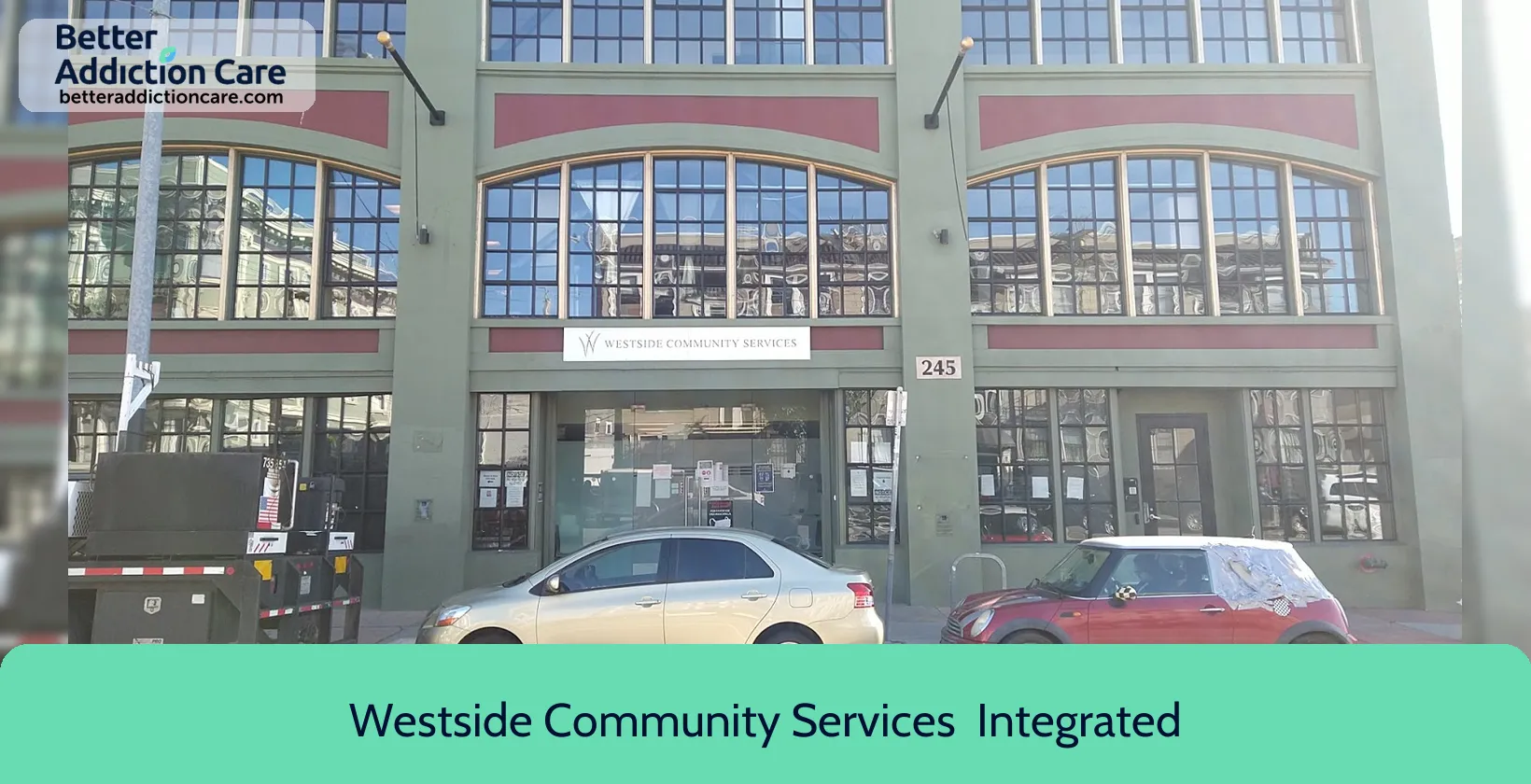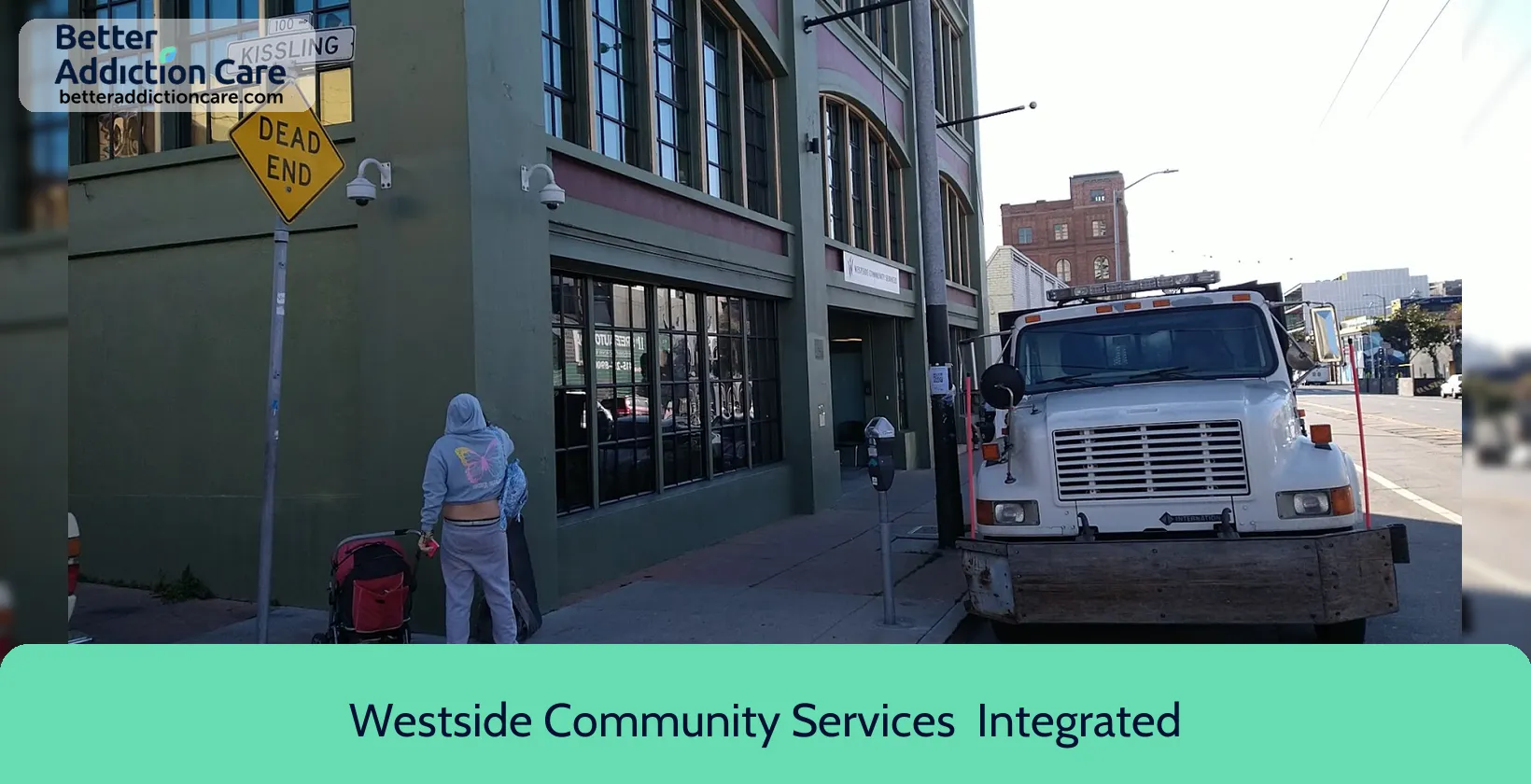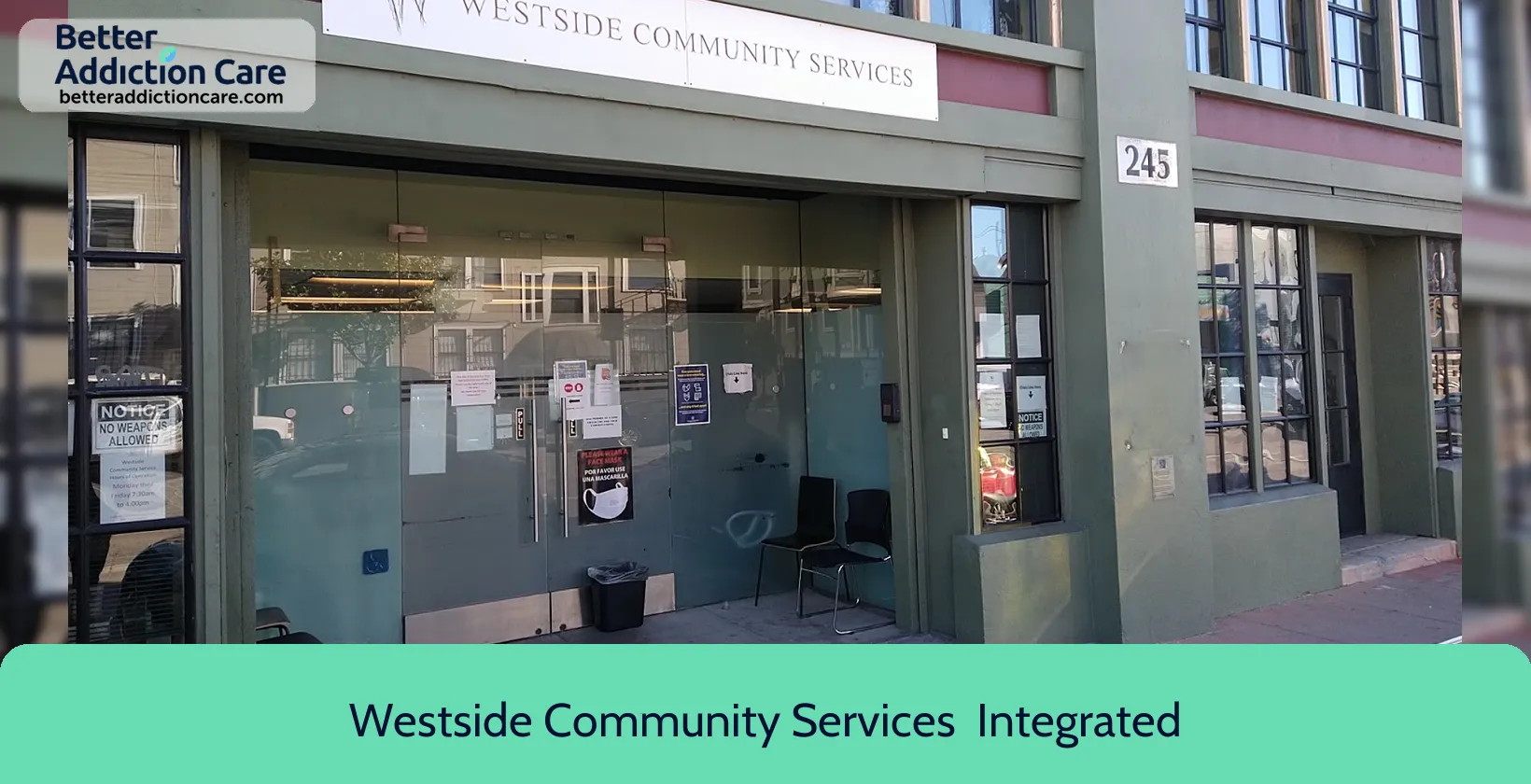Westside Community Services - Integrated Services
Overview
Westside Community Services - Integrated Services is an substance abuse treatment center that provides inpatient and outpatient treatment for men and women from 18+ years of age. As part of their special programs, Westside Community Services - Integrated Services treats clients who have experienced trauma. To help patients achieve sobriety, Westside Community Services - Integrated Services provides intake assessments. Afterward, patients receive family counseling, individual psychotherapy, and cognitive behavioral therapy during treatment. Westside Community Services - Integrated Services is located in San Francisco, California, providing treatment for people in San Francisco County, accepting county or local government funds, community mental health block grants, and medicaid.
Westside Community Services - Integrated Services at a Glance
Payment Options
- County or local government funds
- Community Mental Health Block Grants
- Medicaid
- Other State funds
- Private health insurance
Assessments
- Comprehensive mental health assessment
- Comprehensive substance use assessment
Age Groups
- Adults
- Young adults
Operation
- Private for-profit organization
Highlights About Westside Community Services - Integrated Services
6.74/10
With an overall rating of 6.74/10, this facility has following balanced range of services. Alcohol Rehabilitation: 8.00/10, Drug Rehab and Detox: 6.00/10, Insurance and Payments: 6.00/10, Treatment Options: 6.97/10.-
Alcohol Rehabilitation 8.00
-
Treatment Options 6.97
-
Drug Rehab and Detox 6.00
-
Insurance and Payments 6.00
Treatment At Westside Community Services - Integrated Services
Treatment Conditions
- Mental health treatment
- Substance use treatment
- Co-occurring Disorders
Care Levels
- Outpatient
- Hospital inpatient treatment
Treatment Modalities
- Family counseling
- Individual psychotherapy
- Cognitive Behavioral Therapy
- Dialectical Behavior Therapy
- Group counseling
Ancillary Services
Languages
- Spanish
Special Programs
- Clients who have experienced trauma
Contact Information
Read our Most Recent Article About Drug Addiction
DISCLAIMER: The facility name, logo and brand are the property and registered trademarks of Westside Community Services - Integrated Services, and are being used for identification and informational purposes only. Use of these names, logos and brands shall not imply endorsement. BetterAddictionCare.com is not affiliated with or sponsored by Westside Community Services - Integrated Services.











